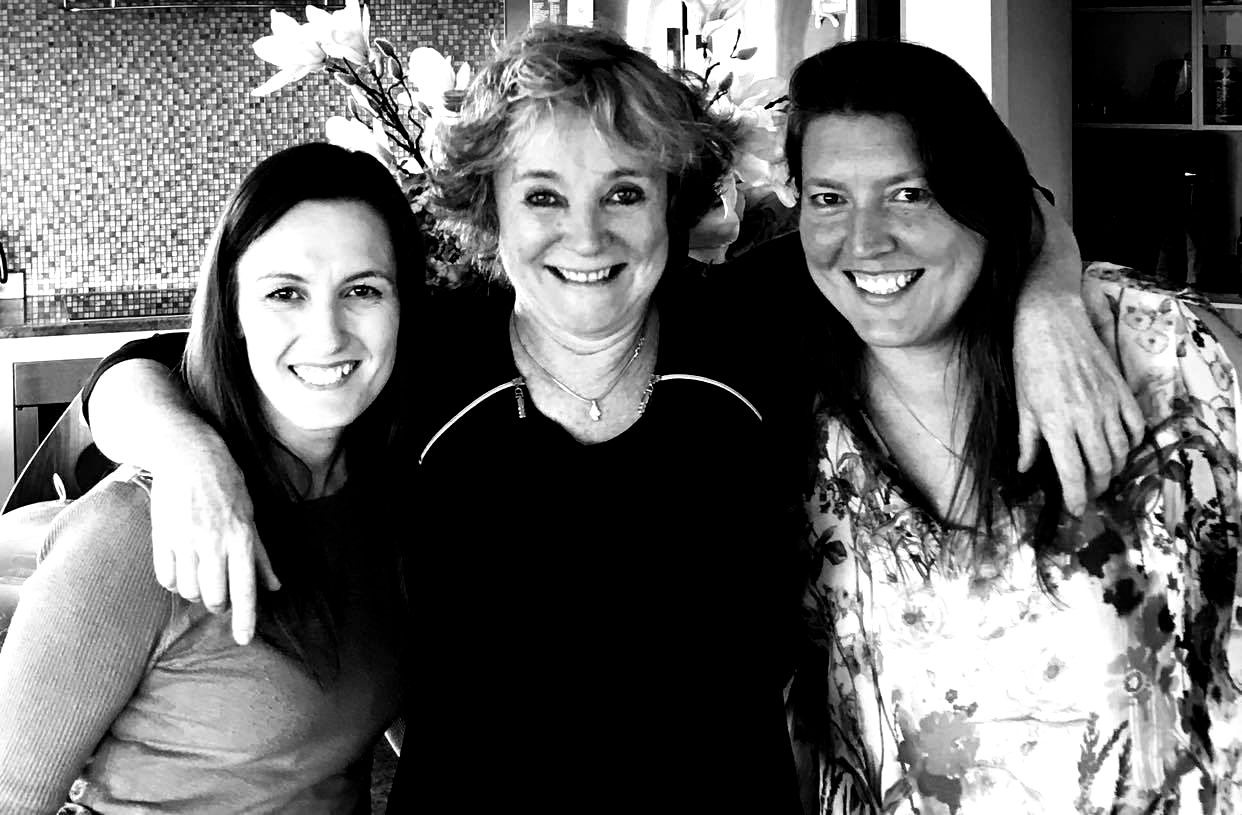Joint Tenants VS Tenants in Common
Sirpa Gunn • April 24, 2019
Who will inherit your property when you die? If it is owned as joint tenants it may not be who you intended it to go to!

Do you own a property jointly with another person? (be it a husband, wife, business partner, family member or friend) Is the property registered in your personal names as opposed to a trust or company?
If so it is vital that you understand the implications of the ownership structure and what will happen to the property on your death or the death of any co-owners. There are two options: firstly, to own the property as joint tenants; secondly as tenants in common.
1. Joint Tenants:
Where a property is owned as joint tenants all of the owners names are listed on the title in the following format: Jane Sarah Jones and Mathew John Smith. This is the most common form of ownership and banks will issue mortgage documents in this form unless you specifically request otherwise.
If one owner dies the property will pass directly into the name of the other owner(s). In this example if Jane Jones dies the property will pass directly into Mathew Smith’s name. This is all very well if they are a couple that have kids together, but families these days are not always that simple. If Jane Jones had children from a previous relationship they would miss out entirely, even if her will specified otherwise! Or if she had no children she may want her assets to go to her family (parents and siblings) rather than to her current partner as listed on the title.
Putting someones name on the title to help get a mortgage is quite a common occurrence – however few people realize the consequences . An example of this is a lady in her 70’s who wanted to purchase her dream retirement home. The house she chose cost $1,000,000 however she only had $900,000 saved and required a loan for $100,000 to complete the purchase. As she was no longer working the bank was reluctant to give her a mortgage so her eldest son kindly agreed to purchase the property jointly with her. His name went on the title, and he assisted his mother by making mortgage repayments. When she passed away, 15 years later, the entire property went directly to the eldest son. Needless to say her other four children were horrified at loosing out on their inheritance and a long nasty family feud (and legal battle) ensued.
2. Tenants in Common:
With this option the ownership of the property is divided into shares. Should one of the owners pass away, their share in the property will go to their estate and be dealt with according to their wills and?or the laws of intestacy and relationship property.
This method of ownership is usually suited to:
– business partners or friends co-purchasing a property
– couples with children from former relationships that wish to leave a share in the property to their children
– anyone going on the title to give financial assistance for mortgage purposes.
The amount each party contributes to the purchase can be reflected in the shares, so in the case of the son helping his mother he could have had a 1/10th share in the property and his mother a 9/10th share. On her death the mothers share would then be divided equally among her children, as she had no doubt intended.
Get in touch with the Conveyancing Shop Lawyers
for more advice on property ownership options including: Joint Tenants, Tenants in Common and other property ownership options .
News and articles

Lets face it lockdown meant some big changes, for us individually, as a firm, an industry and a country. Working from home took some getting used to - our team reported quite varied challenges, from mastering new technology, balancing home schooling kids with work, coping with loneliness in isolation, to struggling to work with a dog on your lap (which if you have a St Bernard like I do, is a real challenge!) and last but by no means least, missing our favourite coffee fix! The transition was seamless for our clients, as we had all the systems in place to manage files, receive calls and emails and continue business as usual. Like most industries we have seen a marked decrease in work during the lockdown as property sales practically came to a standstill. We are pleased to see the market is starting to pick up again. The drop in mortgage interest rates make it a great time to refinance and easing of LVR restrictions mean that we are now seeing many enquiries from first home buyers which is a good sign! There have been some legislative changes that allow us to witness many documents via audio visual links rather than in person. This has definitely made things easier during lockdown and we will continue to use this method Post-covid to look after clients New Zealand wide and overseas. Our team is excited to transition back to the office from Thursday 14th May. We ask that clients please continue to email, call and video conference for a while longer as we will not be open for face to face appointments at this time. We trust that you are all safe in your bubbles and looking forward to returning to normality soon! Thada, Sirpa, Michelle and the CSL Team

Many people have taken advantage of the mortgage holiday option offered by mainstream banks to provide relief during the Covid 19 crisis in New Zealand. What some people may not have considered is that this is a repayment holiday not an interest holiday. The interest keeps accruing on your loan and is added to the amount you owe the bank. After the 6 month mortgage the amount you owe the bank will have increased. Let me give you an example. Say you have a $500,000 Mortgage fixed at an interest rate of 4.25% for 20 years. The interest you will be charged for the 6 months would be $10,625. During a mortgage holiday this interest would still accrue and would be added to the overall amount you owe. After 6 months your mortgage would have increased to $510,625. You would then be charged interest on this higher amount and/or the term of your loan would be extended. I realise that for some a mortgage holiday is the only way to make ends meet at the moment, but I have also seen many people who are just taking advantage of the offer and having a break from repayments just because they can. While a mortgage holiday may give you temporary cash flow assistance you need to consider the long term cost and assess if it is worthwhile. Could switching to interest only payments work out better in the long run. This way you will reduce your payments but not increase the amount you owe. Important note: This is a discussion topic only based on the personal opinion of the author. It does not reflect the companies views or policies and is not intended to give legal, financial or tax advice

There may be some bargain properties up for grabs at mortgagee sales but buyers need to beware. Purchasing at mortgagee auction is not without its risks. Buying a property at auction is quite different from negotiating on a standard Sale and Purchase Agreement through a real estate agent. Apart from the fact that purchasers get caught up in the excitement and pressure of the auction day they are also bidding to purchase the property unconditionally. This means that they need to have done their homework and satisfied all of their conditions (finance, LIM report, builders report etc) prior to the auction. Mortgagee auctions differ further from standard auctions in that the owners of the property have defaulted on their loan repayments and the bank, after giving them the required notice, has foreclosed and is selling the property. The auction agreement that purchasers sign at a mortgagee sale does not include many of the standard fine print clauses that are there to protect purchasers in the usual Agreements for Sale and Purchase of Real Estate and auction agreements. Some of the additional risks purchasers face buying at mortgagee auction are: 1. Not getting vacant possession on settlement date In a standard property purchase the vendor is required to give the purchaser vacant possession on settlement date unless the purchaser has specifically agreed to take over a tenant. This is not the case with mortgagee sales where it becomes the purchasers responsibility (and cost!) to evict any tenant or old owner. The purchaser is also limited by the fact they can only start the eviction process once they are the legal owners of the property which is after settlement has occurred. 2. Not being covered for damage to the property before settlement The mortgagee (bank/lender) will not compensate the purchaser or rectify and damage to the property which may occur between the time of the auction and the settlement date. There have been cases of disgruntled old owners who are upset that the bank is selling their house from out under them and trash the house, or strip the kitchens, bathrooms, door frames, windows etc and leave only a shell of a house. It is therefore essential to get insurance on the property from the day of the auction. 3. Chattels can be removed prior to settlement The basic chattels that come with a standard property purchase are floor coverings, window coverings, light fittings and the stove. Other items such as dishwashers, rangehoods, heat pumps and heated towel rails are often included in the sale and listed in the sale and purchase agreement (see article Dont Forget the Chattels for more details). In a mortgagee sale situation the chattels are commonly not included in the S&P Agreement as the Mortgagee (bank) only has security over the property and the previous owner is within their rights to remove them before settlement. 4. Not viewing the property prior to the auction Sometimes prospective purchasers do not have access to view the interior of the property prior to the mortgagee sale. This means that they are in effect buying sight unseen. It also means that the purchase may not be able to get a building inspector through the property and takes the additional risk that the property may not be structurally sound or water tight. 5. No Vendors warranties The standard Vendors warranties are typically removed from a Mortgagee Auction Agreement. This means that mortgagee will not warrant for example that the any work done on the property complies with the local council requirements and has a Code of Compliance Certificate (CCC). In summary mortgagee sales are very high risk so professional advice should always be sought prior to bidding at a mortgagee auction. Contact our team of lawyers before you go to auction!

What is leasehold land? Leasehold is a form of property ownership whereby you own the buildings and any other improvements on the site, but you lease or rent the land from a land owner. The Pro’s Leasehold land is without a doubt cheaper than buying freehold. This is because you are not purchasing the land outright, only a right to us it for the period of the lease. In Auckland it is possible to purchase an affordable leasehold home in a trendy area like Parnell, the City Waterfront or One Tree Hill where freehold properties can sell for well over double the cost of a leasehold! For some people buying leasehold works out cheaper than renting over the period of the lease with the added benefit of owning your own home. Others decide to buy leasehold as after doing the sums they find that paying a typical lease fee of 5% p.a. of the freehold value of the land to the landowner is less than paying 8% mortgage interest to the bank on a more expensive freehold property!. The Cons: You should be aware however that while the lease may be affordable at the time of purchase there are rent review periods where the ground rent is assessed in comparison to the current property market values. This means that if the freehold value has increased you run the risk of a sometimes substantial increase in ground rent. I remember a few years back some clients of mine were most distressed to learn that the lease fees for their city apartment were increasing by over $10,000 per annum! Generally people buy real estate as an investment, as way to build wealth for themselves and their heirs. It is usually the value of the land which increases over time providing capital gains to the land owner. In a leasehold situation it is the owner of the land that benefits from this increase in value of the land over time where the tenant only has the right to live there and owns an ageing house that could be decreasing in value and needing expensive maintenance and repairs. Leasehold land is more difficult to finance with banks requiring higher deposits than for freehold equivalents. It can also prove more difficult to sell a leasehold property, particularly if you are nearing the end of the lease or approaching a review period. And remember with a leasehold property all outgoings are still your responsibility (not the land owners). These include city and regional council rates, body corporate fees if it is a stratum title, insurance and maintenance. Do your homework: Each leasehold property needs to be assessed on its own merits as not all leases are the same. Many have a finite term of say 50 or 100 years. The value of the property is obviously affected by the remaining term of the lease whether it has 60 years left to run or 6 can make a big difference! Some leases give the tenant the option to purchase the land freehold on expiry of the lease with a formula included to calculate the sale price of the land at that time. Other leases while having a finite term also have a right of renewal which if exercised would mean the lease could continue in perpetuity. There are also often restrictions as to the land use included in the lease. Before entering into an agreement to purchase leasehold land it is essential to get legal advice and go through the lease documentation with your lawyer before deciding whether or not to proceed. Contact the Conveyancing Shop Lawyers today on 0800 Solicitor for more information on buying leasehold land.

Buying a property is a big investment, often the biggest individuals make in their lifetimes making the Sale and Purchase Agreement one of the most important documents they will ever sign. It is therefore quite alarming to see how many people enter into this legally binding contract without getting advice from a lawyer and without understanding what is contained in the agreement. Only last week I had a young couple bring in a signed agreement to purchase a property that contained no conditions. They had found a property on Trade Me and signed up a Sale and Purchase agreement with the Vendors thinking that they were just “negotiating the price” and now wanted to order a LIM report and apply for finance approval. They were extremely surprised to discover that they had entered into an unconditional contract without including the necessary conditions! I come across this type of easily avoidable problem on a daily basis that purely result from individuals not getting legal advice before entering into an agreement. Some other examples are purchasers not realising that the price they have agreed to is plus GST, poorly drafted clauses that lead to disputes over the interpretation and the worst case of a client signing a blank agreement and leaving their friend to fill in the details! Another misconception is that purchasers or vendors can cancel the agreement if they change their mind. This is not the case so it’s imperative that conditions are inserted into the agreement (before signing!) allowing the purchaser time to do their homework on the property. The three most common conditions which are recommended for most residential property purchases are: 1. Finance Condition Even if you have pre-approval from your bank you still need to get unconditional finance approval for the particular property you are purchasing. 2. LIM Report This is report prepared by the City Council giving information regarding the property such as land features, rates, building consents, zoning and more 3. Building Inspection Repor t Get a qualified building inspector to investigate the property for any potential maintenance, water tightness or structural issues If you are purchasing a house that is being built or subdivision that is not yet complete a Sunset Clause may be appropriate. This would give you the option to get out of the agreement should the work not be completed and settlement not have occurred within a specified time frame. If you are an overseas person wishing to purchase sensitive land in New Zealand then an OIA consent condition would be required Other common conditions include a subject to a Registered Valuation, Solicitors Approval, the Sale of an existing property and Due Diligence.. It is important that conditions are properly worded so that their meaning is clear and they are not disputed at a later date. A lawyer can help you in drafting a clause tailored to your specific situation. Do not rely on verbal agreements with the Vendor or Agent. If they have agreed to do something like maintenance work on the property prior to settlement include this in the further terms of sale Remember – No two property purchases are the same it is therefore essential to always consult your lawyer before entering into an agreement for Sale and Purchase to discuss what conditions are appropriate for the specific circumstances.

5 essential pre-auction checks: If you’ve been house-hunting in Auckland, you’ll know that the majority of properties in the region are selling at auction.This is tough for buyers as you have to do all the checks prior to bidding but remember a property is most peoples largest investment so well worth spending the time and money on! 1. Title and Auction Agreement – what type of property are you looking at? Is it a cross lease, fee simple, unit title or leasehold? What are the implications of each of these? Are there any additional clauses or exclusions in the contract? It is essential to go through the title of the property and auction agreement with your lawyer to be sure you fully understand what you are getting into.. 2. LIM report – At auctions, the real estate agent often supplies the LIM to save potential buyers the cost of ordering one from the council. The LIM shows all the information the council has on file for the property, like Code of Compliance certificates and any outstanding requisitions. 3. Property file – In addition to the LIM, you may want to go into the Council to do a property bag inspection – this is highly recommended if you suspect un-consented work has been done on the property. You can view the plans and make sure they match what actually exists. 4. Builder’s report – Before buying you should always get the opinion of a building inspector. They will do moisture tests and check things that you may have missed. This can be expensive, but compared to the cost of the house it’s money well spent. 5. Finance – It is important to get finance approval in writing from your lender before you commit at an auction. Pre-approval is only half of the process – you also need to get the bank’s approval for the specific property you are bidding on. Want to know more about buying at auction? Contact us on 0800 Solicitor for a free no obligations chat..


